Chris Froome: There are no quiet days for the GC hopefuls at the Vuelta
Tour winner pays tribute to Contador before Spaniard’s final Grand Tour, expresses solidarity with terror victims
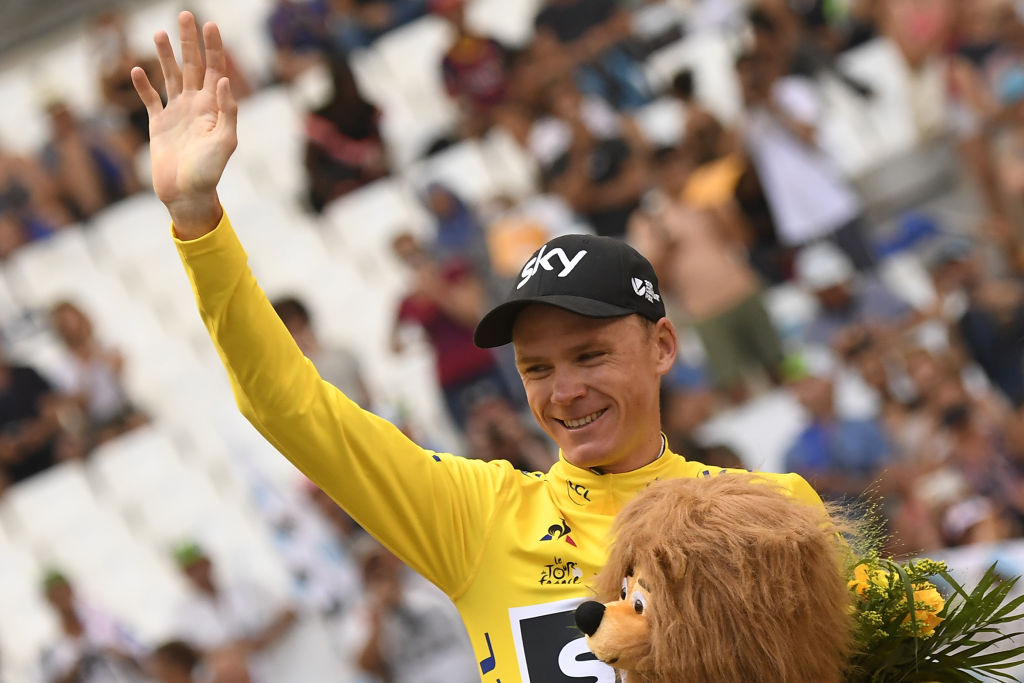
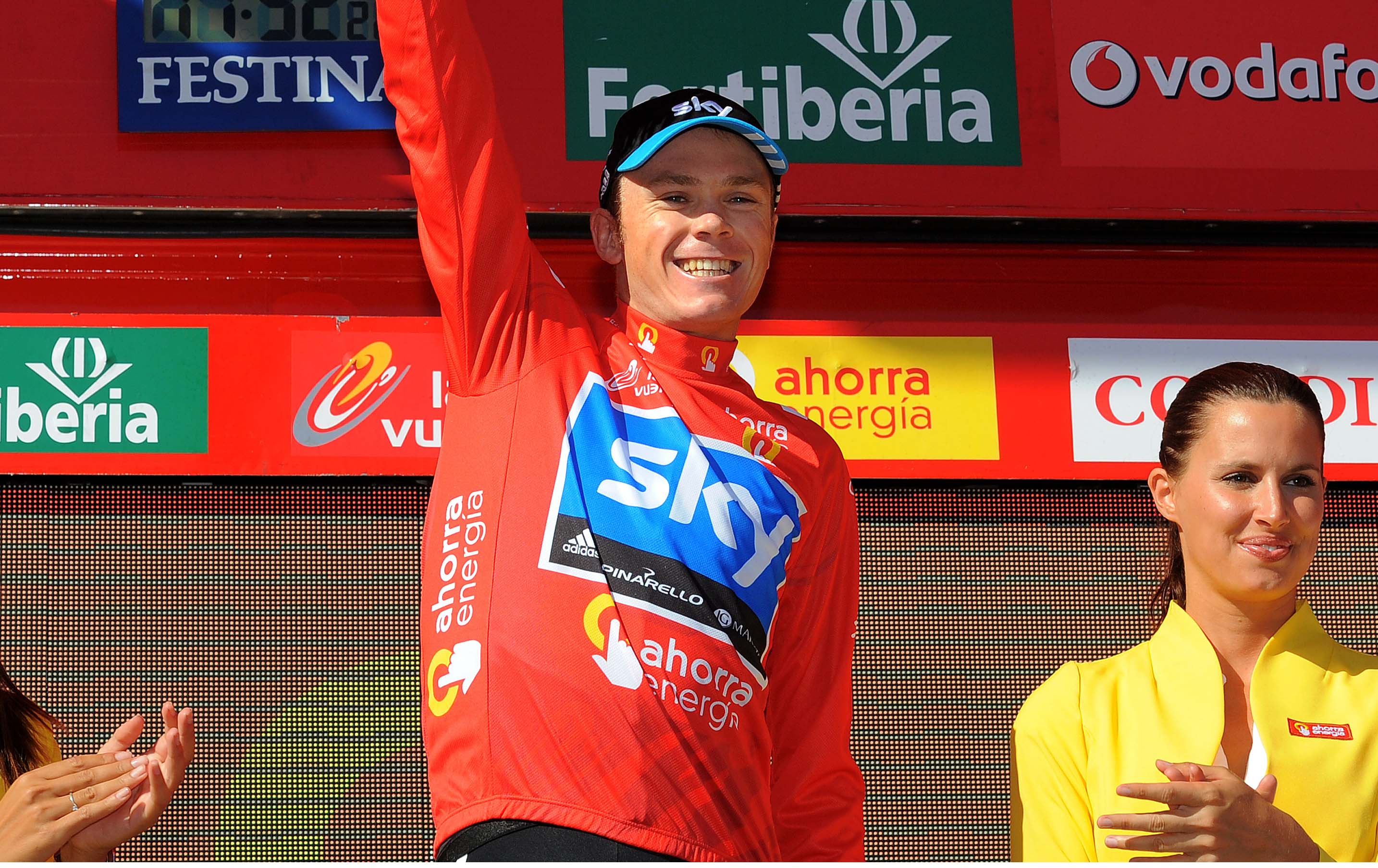
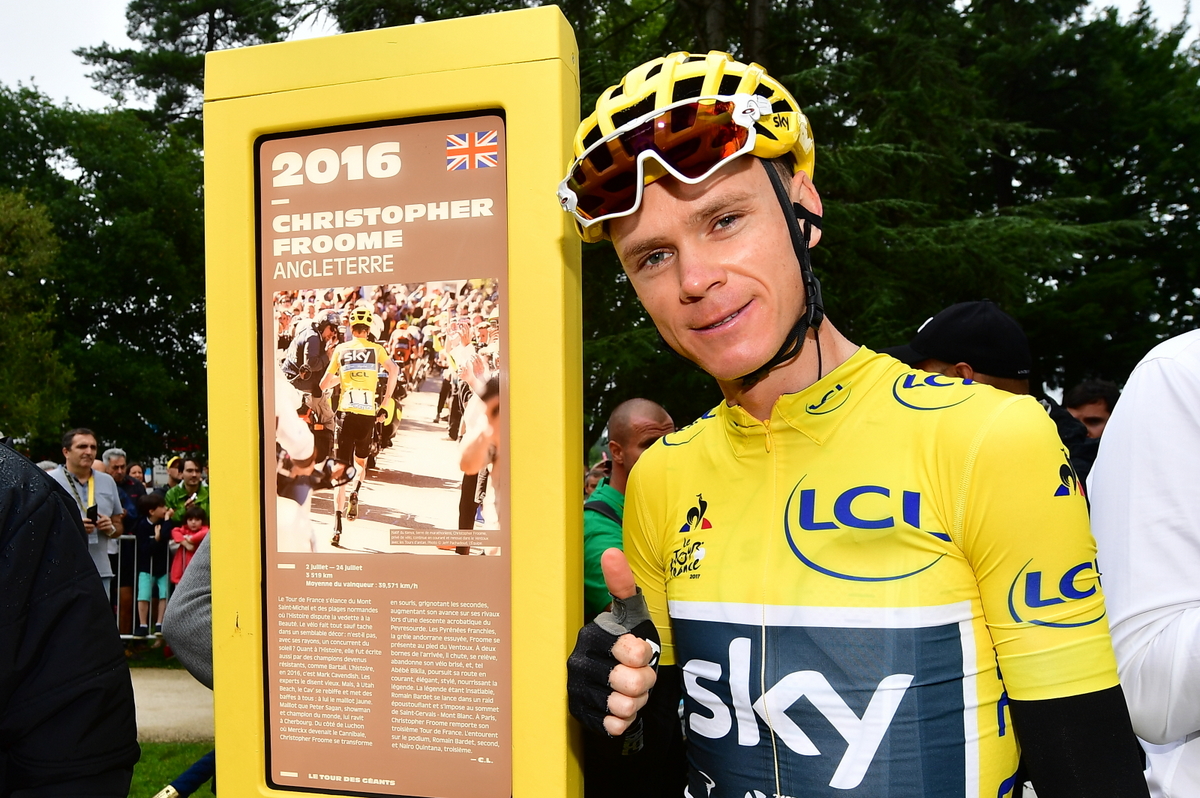
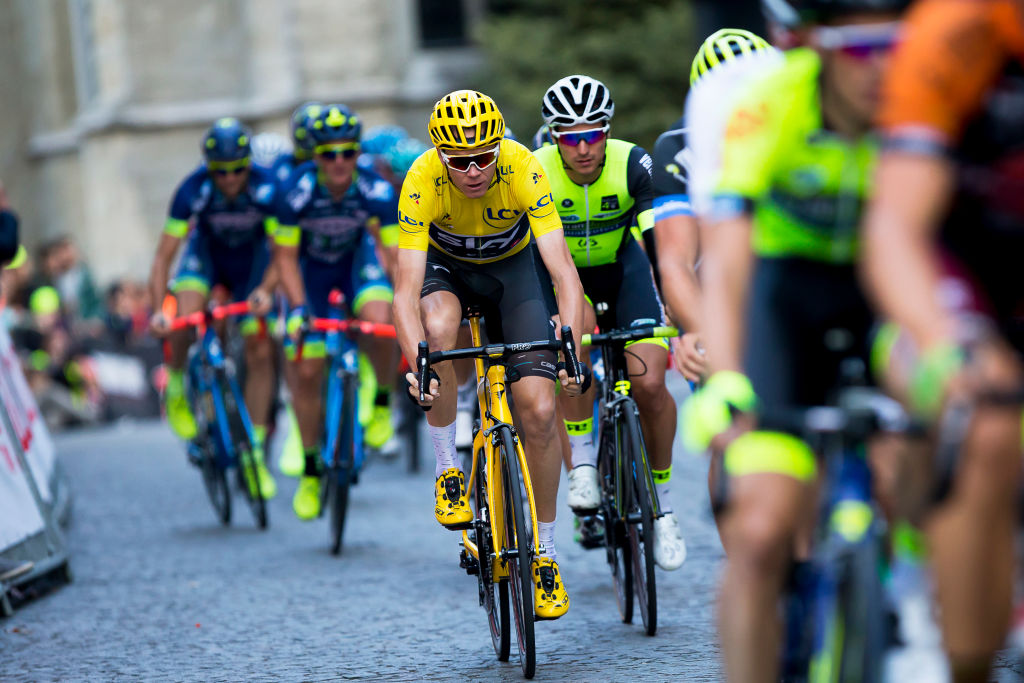
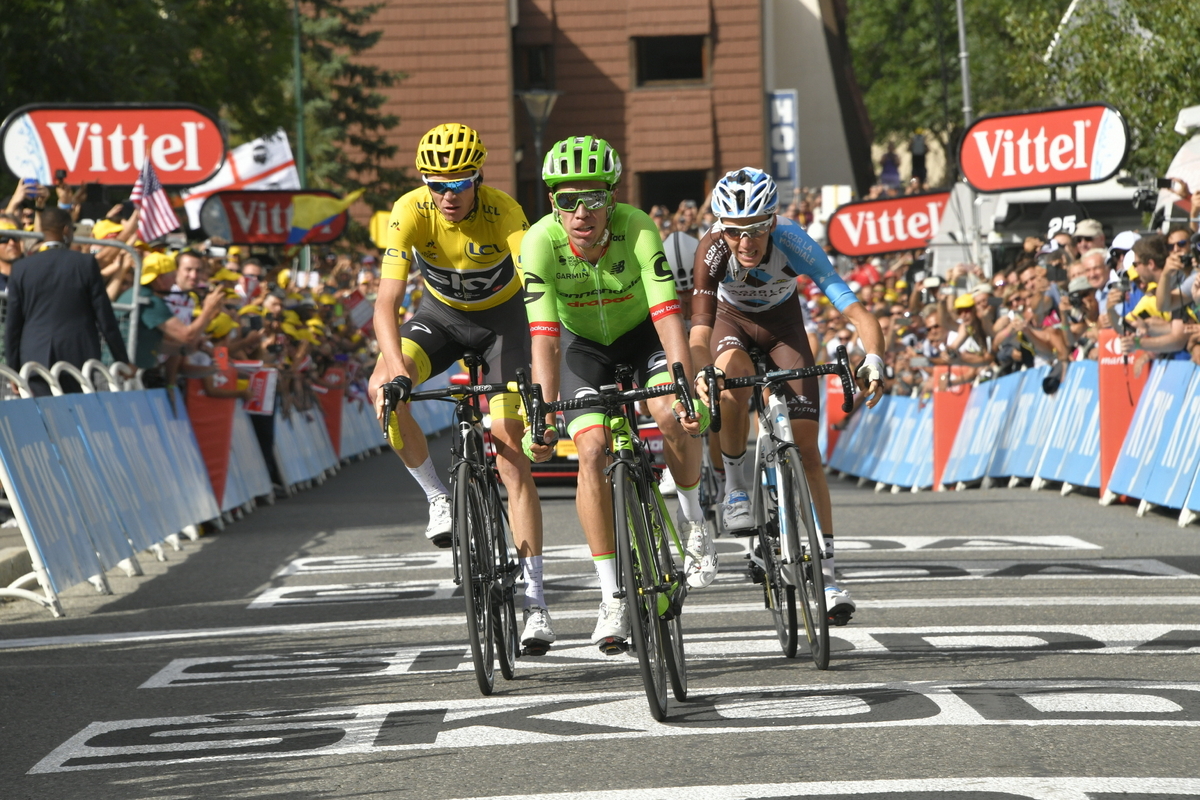
Chris Froome (Team Sky) says he is aware that this year's challenge for the Vuelta a España will be no less tough than previous years, but that he has had the opportunity to "really focus on being ready for this year's race."
Three times second in the Vuelta a España, Froome has tenaciously persisted at what even last year in the run-up to the race he was describing as 'unfinished business.' Now, one imagines, after last September's defeat by Nairo Quintana, Froome has mentally added some capital letters to that particular phrase when it comes to la Vuelta.
Asked on Friday afternoon if winning the Vuelta had gotten the point of constituting an obsession for him, Froome smiled and said, "not that, it's a race I really enjoy doing every year. It's obviously difficult coming after the Tour de France to get back to that sort of condition a month later, but I really enjoy that challenge.
"This year in particular I've really had the chance to focus on being ready for the Vuelta a España after the Tour. I haven't had the Olympics, like I had last year, so that's given me a good period of training to focus on this."
Froome's build-up to the Tour de France earlier this year saw him take far fewer victories than he had in years past, but his focus on the Vuelta may have had at least something to do with that.
"The plan was to have a lighter first part of the season and I think that's worked. I certainly feel fresher. But whether that's reflected in the racing we'll have to wait and see," he said. However, he warned, too, that the Vuelta was a gruelling exercise on more levels than just the physical one, saying, "Sure, sure, mentally this is as tough as it gets."
There are so many GC stages here, it's almost as if every day you have to be right up front, concentrating, whereas in the Tour we had a few transition stages where you could say, ‘Okay it'll be a quiet day for the GC.' I don't feel we have that here, so that's another really challenging aspect to this year's Vuelta.
Get The Leadout Newsletter
The latest race content, interviews, features, reviews and expert buying guides, direct to your inbox!
"When with the conditions down in southern Spain with temperatures going to be over 40 degrees, it's going to be a massive, massive fight for the victory."
The biggest absence from the Vuelta this year is undoubtably Quintana, but Froome underlined that "there are a lot of really strong riders here, even without him. We have riders from the Tour here – and the Giro, too – who'll be more fresh for this year's Vuelta." Among that latter group, the rider who stood out most for Froome was Italy's Vincenzo Nibali (Bahrain-Merida), although overall, he said, "there's a really deep GC group here and until they start to lose time, everybody has to be considered a real threat."
One senior member of the Colombian press on the Vuelta then asked Froome whether he felt that any particular stage could offer a major challenge.
"I think of course it's about 21 days of racing, but with nine summit finishes, there are at least nine very tough stages we really have to look out for," Froome said.
"But having said that, I think the [stage 16] time trial is one day I'm looking forward to, a lot of time can be won or lost there. And of course stage 20 to the Angliru is a massive stage."
Route-wise, Froome argued that such a long, flat mid-Vuelta time trial made the race a more balanced affair than other, unspecified Grand Tours, with climbers looking to gain time on the mountain stages and 'guys like me' to take time back on the time trials.
The Vuelta a España will be marked not just by Froome's battle for victory, but also Alberto Contador's last ever Grand Tour. As Froome put it on Friday, "he's certainly been one of my biggest rivals over the last few years, and he's got a certain flair to his racing, a very aggressive style and that's something that animates the race a lot more and that's going to be missed."
Froome smiled when it was put to him that Contador had helped sway the 2016 Vuelta in Quintana's favour, saying "Nairo probably owes him one. But it'll be interesting to see how Contador races his last Tour, I don't think it's in his nature to go out as a procession. I think he's here to win and will do everything he can to animate the race."
Like Contador, Froome also expressed solidarity with the victims of the Barcelona and Cambrils terror attacks, later telling local television in French in a separate interview that "it's something very, very hard to comprehend. The Ramblas [avenue in Barcelona, where the first attacks took place] is somewhere families go out to walk together, it's hard to see the images." As he concluded, "We can only express our greatest sympathy for the victims of the attacks."
A retooled line-up to support Froome's Tour-Vuelta bid
Froome lavished praise on Sky's lineup for the 2017 Vuelta in comparison to other years, calling it strong, well-balanced and pointing out it contained some riders who had done the Giro d'Italia rather than the Tour this year and who were "therefore fresher."
"There's certainly a feeling of purpose in the team, more than previously," he said, pointing out an important factor after last year's collective defeat in the Pyrenees. Only four riders from Sky's 2016 Vuelta line up are repeating 12 months on, in fact - Froome, Salvatore Puccio, David Lopez and Christian Knees. From this year's Tour, only Froome, Mikel Nieve and Knees are back again.
Winning the Vuelta has the feeling of unfinished business for Sky as well as for Froome, then. But there is also the increasingly significant historical angle, too, with even Eddy Merckx - one Belgian journalist told Froome in Nimes - weighing in on that point this summer.
Merckx has apparently said that for Froome to compare historically with five-time Tour champions like the Belgian, Hinault or Indurain, the Briton has to do "more" than "just" win the Tour on four occasions. This would, presumably, mean that winning the Vuelta, or maybe the Giro, would gain Froome some virtual points in Merckx's book.
Froome diplomatically argued that "of course we're racing more than a few decades apart so times have changed. There's no way I'm going to be targeting victory in the Spring Classics as well as the Grand Tours. It doesn't work like that any more in the sport, currently.
"Of course it would be a huge honour to get up there with the guys who've won five titles, but that's something for next year."
But it's also true, too, that Merckx never won the Vuelta in its current September slot, let alone a Tour-Vuelta double in that order – which would have been impossible given the race only moved there in 1995 – and as Froome said "I'm really motivated to try and do that." Or as he put it at another point in the press conference with a slightly wry laugh, when asked why he tried to win it after four Tour victories, "I have to get ‘up there', to do more than just win the Tour."
Alasdair Fotheringham has been reporting on cycling since 1991. He has covered every Tour de France since 1992 bar one, as well as numerous other bike races of all shapes and sizes, ranging from the Olympic Games in 2008 to the now sadly defunct Subida a Urkiola hill climb in Spain. As well as working for Cyclingnews, he has also written for The Independent, The Guardian, ProCycling, The Express and Reuters.
